Invites Au Banquet Du Seigneur – (Other Language)
$16.99
Tous les chretiens savent que Jesus a institue une celebration avec du pain et du vin. Certains l’appellent le repas du Seigneur, d’autres l’appellent la cene, la communion ou l’eucharistie. Pourquoi les chretiens participent-ils encore a cette celebration de nos jours? Quel en est le sens? Et qu’est-ce que cela nous apprend sur le ministere de Jesus Christ?
Professeur Christian A. Eberhart repond a ces questions par l’etude des textes fondateurs. Il nous immerge tout d’abord dans les textes du Nouveau Testament qui font reference au dernier repas de Jesus. Puis la quete de sens nous mene dans l’Ancien Testament, ou nous poursuivons la recherche sur les themes de la Paque juive, des rituels sacrificiels et de l’expiation. Ces textes nous offrent des cles determinantes pour la comprehension du pardon des peches a l’oeuvre durant la communion. Pr Eberhart montre aussi que cette celebration instituee par Jesus est un repas ritualise. Par consequent, il explore aussi les fonctions sociales des repas communautaires dans l’antiquite greco-romaine. Au final, la communion apparait tel un puissant symbole, encore pertinent de nos jours, qui transmet l’amour de Dieu et l’ideal d’une societe inclusive.
in stock within 3-5 days of online purchase
SKU (ISBN): 9781632962102
ISBN10: 1632962101
Language: French
Christian Eberhart | Translator: Veronique Eberhart
Binding: Trade Paper
Published: September 2018
Publisher: Lucid Books
Print On Demand Product
Related products
-
Sacrament Of Reconciliation
$29.95Add to cartAlthough it did not come from Christ in the form it has today, it is clear from Scripture that reconciliation was central to the ministry of Christ. In The Sacrament of Reconciliation David Coffey examines the theology of reconciliation and addresses the crisis that the sacrament faces in the present pastoral situation of the Church.
Father Coffey calls on Scripture and tradition, to the magisterium, and to theology in his analysis. However, he also moves beyond these to look at the practice of the Church and to the liturgy as it is regulated, celebrated, and experienced. In doing so, he presents a theology of the sacrament of reconciliation that is truly based on, and inspired by, the liturgy. This theology is molded by two contextual factors: the crisis that the sacrament is currently undergoing in the developed nations of the West and the restrictions imposed by Rome on the “third rite,” the most communal of the three forms of the sacrament.
Since the sacrament of reconciliation exists for the forgiveness of postbaptismal sin, chapter one is devoted to a theology of sin. Here, Father Coffey identifies what the main theological cause is at the heart of the present crisis, namely, a serious and widespread confusion about the nature of sin. Chapter two focuses on the Church’s ministry of reconciliation. This chapter provides both essential knowledge and a response to the widely held view that one does not need to turn to the Church in order to obtain forgiveness from God for sin. Chapter three examines the four parts of the sacrament: contrition, confession, absolution, and the prescribed work of penance. The investigation in this chapter suggests theological limits to possible future reforms of the sacrament. In chapter four Father Coffey offers a detailed examination of the three sacramental rites and the nonsacramental service set down by The Rite of Penance. Finally, in chapter five, Father Coffey offers some predictions about the future of the sacrament, based on his study.
-
Recovering The Riches Of Anointing
$23.95Add to cartRecovering the Riches of Anointing is a collection of the papers presented at an international symposium sponsored by the National Association of Catholic Chaplains (NACC) as part of a long-term exploration of topics of theological and pastoral concern in pastoral care of the sick. This book looks at the anointing of the sick from the vantage point of theology, history, and canon law.
Since Vatican II the training and commissioning of lay Eucharistic ministers has enabled the sick and dying to receive the nourishment of Christ’s body and blood regularly in their confinement at home or an institution. The sacraments of penance and the anointing of the sick, however, have become less and less available as the number of ordained priests in chaplaincy is decreasing. In response to this pastoral problem Bishop Richard J. Sklba, auxiliary bishop of Milwaukee, suggested that the NACC gather theologians together to explore the history and practice of this sacrament and other rituals in the rich tradition of the Church. Thus the papers concerning this particular sacramental ministry were written and delivered at this conference.
Recovering the Riches of Anointing will be helpful for professional ministers of pastoral care; professional pastoral, liturgical, and sacramental theologians; and those engaged in pastoral ministry formation.
-
Becoming Beholders : Cultivating Sacramental Imagination And Actions In Col
$36.95Add to cartCatholic colleges and universities have long engaged in conversation about how to fulfill their mission in creative ways across the curriculum. The “sacramental vision” of Catholic higher education posits that God is made manifest in the study of all disciplines.
Becoming Beholders is the first book to share pedagogical strategies about how to do that. Twenty faculty-from many religious backgrounds, and in fields such as chemistry, economics, English, history, mathematics, sociology and theology-discuss ways that their teaching nourishes students’ ability to find the transcendent in their studies.
-
Eucharist : Essence Form Celebration (Revised)
$36.95Add to cartThis well-known and respected work on the eucharistic celebration has been updated and revised. The editor Monsignor Maas-Ewerd has incorporated the insights of recent research, updated the bibliography, and re-formulated many passages in light of some important changes in thought and language since the first edition.
The Eucharist: Essence, Form, Celebration helps readers gain an understanding of correct form for celebration of the eucharistic liturgy in light of the renewals of Vatican Council II. It is therefore an “explanation of the Mass,” as Pius Parsch, to whom the first edition was dedicated, understood it. It is an explanation both of the biblical foundations and of the historical development of the liturgy within its two-thousand-year tradition. Thus, Maas-Ewerd maintains that we must inquire into both aspects-Jesus’ foundational intention and the Church’s long tradition of celebrating the Lord’s legacy-to obtain a clear picture of the enduringly valid form of the Mass at all times, including its present realization.
In the foreword to the first edition, Johannes Emminghaus wrote that, despite the many content and language changes since the first edition, Parsch’s fundamental principle was correct, and it remains so today: the essence or nature of the liturgy can only be explained on the basis of Christ’s institution (as witnessed in Scripture) and the traditional teaching of the Church. Its form, in turn, with its many changes and its high and low points, is explicable also through Scripture and history; but the manner of its celebration can only be explained through the form as we know it and especially through the concrete faith of people.
The intent of The Eucharist: Essence, Form, Celebration is practical: it is meant as an aid to an appropriate and responsible celebration of the congregational Eucharist. Readers-those in ministry, teachers, catechists, and members of parish liturgical committees and study groups, as well as those interested in Church history-are invited to an active participation, one that bears fruit because it stems from faith.
Maas-Ewerd maintains that our task now is to live with the renewed liturgy, to integrate it more fully into our lives, and at the same time understand and celebrate it as a sign of salvation and as the Church’s self-expression. The Eucharist: Essence, Form, Celebration encourages this process.

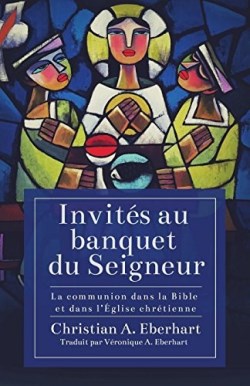
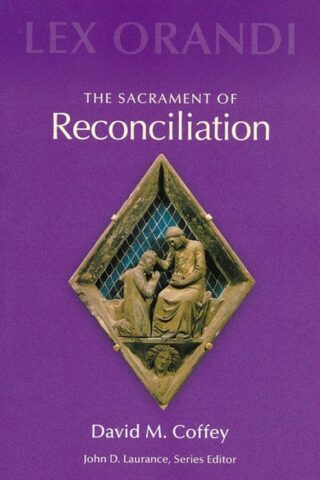
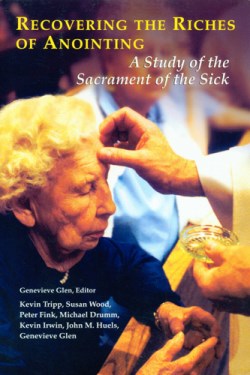
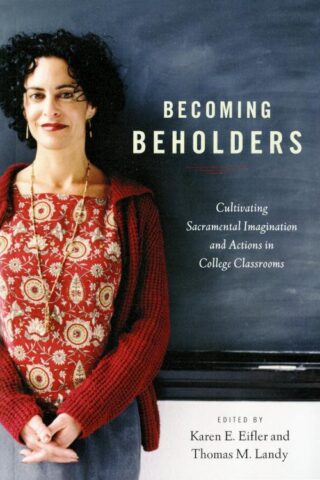
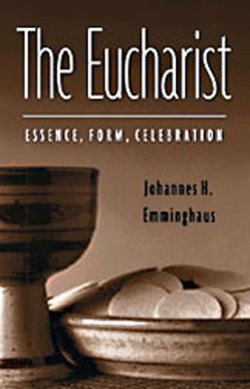
Reviews
There are no reviews yet.